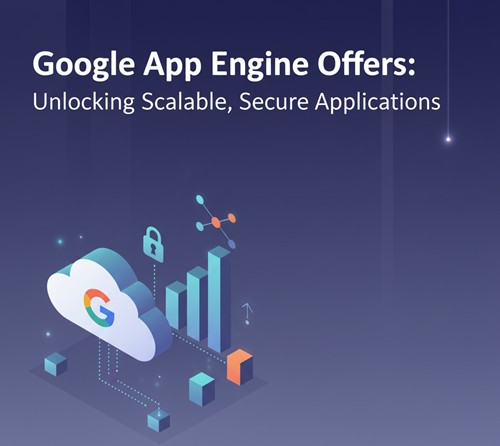Google App Engine Offers: Unlocking Scalable, Secure Applications in 2025
Google App Engine (GAE) is a leading Platform as a Service (PaaS) offering from Google Cloud, designed to empower developers and enterprises to build scalable, secure, and highly available applications without the burden of infrastructure management. As cloud computing rapidly evolves in 2025, understanding Google App Engine offers, the variety of services it provides, its underlying architecture, and its integration with the broader Google Cloud ecosystem is indispensable.
This detailed article covers the core Google App Engine offers, explains services provided by the platform, clarifies common misconceptions such as “google’s app engine platform is iaas offering,” and highlights its foundation within “the name of Google Cloud.” It also examines Google App Engine’s architecture, with insights on its integration with Google APIs and free database options, illustrating why it is an essential PaaS choice.
What Are Google App Engine Offers?
Google App Engine presents a flexible pricing and offer structure to accommodate diverse workloads.
-
Always Free Tier: Includes 28 instance hours per day, 1 GB outbound network egress per month, 5 GB persistent storage, and limited read/write operations in Firestore/Datastore.
-
Pay-As-You-Go Pricing: Billed based on actual consumption of resources such as instance hours, bandwidth, and storage.
-
Promotional Credits: New users enjoy $300 in Google Cloud credits valid for 90 days.
-
Discounts: Sustained use and committed use discounts for long-term savings.
These offers ensure the accessibility of GAE for startups and enterprises alike.
Services Offered by Google App Engine
GAE delivers a comprehensive suite of services:
-
Managed Runtime Support: Includes Java, Python, Node.js, Go, PHP, Ruby, and flexible custom runtimes.
-
Automatic Scaling & Load Balancing: Dynamically adjusts resource allocations based on demand.
-
Traffic Splitting & Versioning: Facilitate progressive rollouts and testing.
-
Background Processing: Leverages Task Queues and cron jobs.
-
Integration with Managed Databases: Firestore, Cloud SQL, Cloud Storage, and Bigtable.
-
Built-in Security: Identity and Access Management (IAM), SSL/TLS encryption, firewall policies.
-
Monitoring and Logging: Using Google Cloud Operations suite for observability.
Understanding Google App Engine Architecture
GAE architecture emphasizes scalability, reliability, and developer productivity:
-
Stateless Application Containers: Applications are deployed in containers to facilitate rapid scaling.
-
Load Balancing: Distributes traffic globally to optimize application responsiveness.
-
Persistent Storage and Database Layer: Backed by Google’s managed databases with high availability.
-
Asynchronous Background Tasks: Decouples processing from user-facing operations.
-
Comprehensive Monitoring: Enables real-time insights and alerts.
Clearing Misconceptions: Is Google App Engine IaaS?
GAE is not Infrastructure as a Service (IaaS). Unlike Google Compute Engine—which provides VM instances and direct control over compute resources—GAE abstracts infrastructure management, focusing on application deployment and scaling, making it a pure PaaS.
Leveraging Google API and Google Free Database
Applications built on GAE can integrate seamlessly with Google APIs like Maps, Vision, and Gemini AI to extend app capabilities. Google’s free-tier databases, including Firestore and Cloud SQL, empower developers with scalable backend data storage without upfront costs.
The Name of Google Cloud and Its Broader Ecosystem
The phrase “the name of Google Cloud” represents a broad suite of interoperable services—compute, storage, AI, and more—offering end-to-end cloud solutions. GAE serves as a key PaaS component within this ecosystem.
Advantages of Using Google App Engine in 2025
-
Accelerated development with managed environments.
-
Automatic scaling and high availability.
-
Cost-effective pay-for-usage pricing.
-
Integrated security and compliance frameworks.
-
Proven, global infrastructure.
Conclusion
Google App Engine offers unparalleled tools, flexible pricing, and a resilient architecture to build cloud applications in 2025. With deep integration into Google APIs and free database solutions, GAE equips developers for efficient, scalable, and intelligent cloud deployments.
